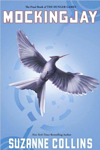
Search
Categories
Famous Authors
Top Selling Books

Book Home ![]() Books Information
Books Information![]() Stephen Edwin King
Stephen Edwin King
Stephen Edwin King
Stephen Edwin King (born September 21, 1947) is an American author best known for horror novels. King's books are extremely popular: among the best-selling books ever.
King's stories frequently involve an unremarkable protagonist—middle-class families, children, and often writers—being submerged into increasingly horrifying circumstances. He also produces more typical literary work, including the novellas The Body and Rita Hayworth and Shawshank Redemption (later adapted as the movies Stand by Me and The Shawshank Redemption, respectively), as well as The Green Mile. King evinces a thorough knowledge of the horror genre, as shown in his nonfiction book Danse Macabre, which chronicles several decades of notable works in both literature and cinema.
Writing style
In King's nonfiction book, On Writing: A Memoir of the Craft, King discusses his writing style at great length and depth. King believes that, generally speaking, good stories cannot be called consciously and should not be plotted out beforehand but are better served by focusing on a single "seed" of a story and letting the story grow itself from there. King often begins a story with no idea how the story will end. He mentions in the Dark Tower series that half way through its lengthy writing period, nearly 30 years, King received a letter from a woman with cancer who asked how the book would end as she would unlikely live long enough to hear it. He stated that he didn't know. King believes strongly in this style, stating that all of his better books came from freewriting.
He is known for his great detail to continuity and inside references; many stories that may seem unrelated are often linked by secondary characters, fictional towns, or off-hand references to events in previous books. Taken as a whole, King's work (which he claims is centered around his "Dark Tower" magnum opus) creates a remarkable history that stretches from present day all the way back to the beginning of time (with a unique creation myth).
King's books are also filled with references to American history and American culture, particularly the darker, more fearful side of these. These references are generally spun into the stories of characters, often explaining their fears. Recurrent references include crime, war (especially the Vietnam War), and racism.
King is also known for his folksy, informal narration, often referring to his fans as "Constant Readers" or "friends and neighbors." He uses this style to contrast with the often gory or scary content of many of his stories.
King has a very simple formula for learning to write well: Read four hours a day and write four hours a day. If you cannot find the time for that, he says, you cannot expect to become a good writer.
King also has a simple definition for talent in writing: "If you wrote something for which someone sent you a check, if you cashed the check and it didn't bounce, and if you then paid the light bill with the money, I consider you talented" (from "Everything You Need to Know About Writing Successfully - in Ten Minutes").
Shortly after his accident, King wrote the first draft of the book "Dreamcatcher" with a notebook and a Waterman fountain pen, "the world's finest word processor". However, he normally uses an Apple PowerBook computer.